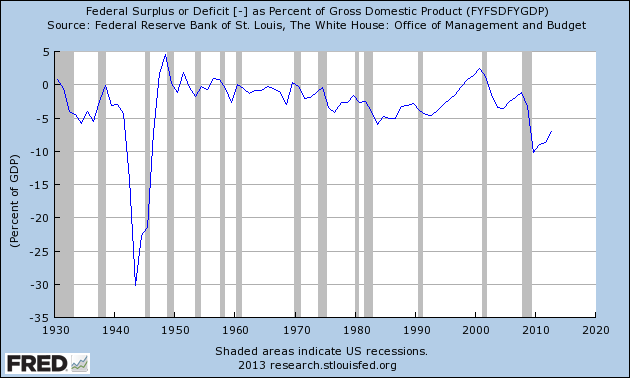Can’t Make ObamaCare Without Breaking Some Households
My latest at Mises Canada. In addition to being wrong on the economics of it, our progressive supporters of ObamaCare display a remarkable callousness to the actual human beings involved.
“My History With IBC [Infinite Banking Concept]”
This article is from the May 2013 issue of the Lara-Murphy Report. This area actually represents a large and growing portion of what I do for a living, so I thought my autobiographical tale would interest some of you.
Best Things on Mt. Gox I’ve Seen
I really hope none of you gets his news from me, because I don’t hit on a lot of things. In case you haven’t heard, Mt. Gox–what was the world’s leading Bitcoin exchange–has folded, leaving millions of depositors unsure if they will see any of their Bitcoin again. Jesse Powell is an insider who wrote a heartfelt reaction to the development (watch out, some profanity).
On the other hand, whoever created this meme has decided to take a lighter approach:

I will outsource explanation of the joke to the comments. Let me say that I personally had no idea what “Mt. Gox” stood for, until today. I am still agnostic on the future of Bitcoin, but now knowing what “Mt. Gox” stood for, it makes me sympathize more with the old guard who have been skeptical all along.
NOTE: I am going to the Bitcoin conference in Texas next week. Part of the reason for that trip is so I can really immerse myself in the world of the Bitcoin experts, before taking a stab at guessing whether Bitcoin (and cryptocurrencies more generally) really are the wave of the future, as the proponents claim. They really do offer a beautiful vision, but something like Bitcoin only realizes its potential if lots of people embrace it for “non-ideological” reasons. A catastrophe like Mt. Gox certainly doesn’t help in that respect.
Two Unrelated (?) Videos
I am carrying these YouTubes on my browser to post for a Potpourri, but I need to clean up the tabs and I want to feature them. So here ya go.
I think they are pretty self-explanatory.
The Pros and Cons of Being Murdered by the President
This guy Matt Walsh is really growing on me. People keep linking him on Facebook; it’s gotten to the point where I may just have to update my Blogroll, something that happens as often as a Fort Knox audit.
Potpourri
==> Once again, Bryan Caplan beats me to the punch. Barry Ritholz et al. have things exactly backwards when it comes to the “welfare queen” corporations relying on food stamps etc. to underpay their workforce. Other things equal, a stronger “social safety net” makes workers pickier when it comes to their jobs. Put it this way: Would it make sense to eliminate welfare benefits and tell the recipients, “We’re trying to give you more bargaining power against Walmart”?
==> THIS IS FREAKY. Scott Sumner (in an older post to which he recently alluded) documents how Frederic Mishkin altered key sections of his textbook, mysteriously right around the time that retaining them would have embarrassed Ben Bernanke. Sumner of course thinks Mishkin is a great guy, but I’m not so sure. To me, the most ominous part about the “Inside Job” attack interview wasn’t that Mishkin got paid to write a study on Iceland, but that he apparently renamed the title of the paper on his CV after Iceland blew up. (Here’s the whole attack piece, but the Orwellian titling stuff starts around 1:05.) That would be like me altering my blog posts to, “My Deflation Bet With David R. Henderson.”
==> Matt Walsh says husbands don’t need to “earn” respect from their wives, just like wives don’t need to earn love from their husbands. Good stuff.
==> This Tom Woods interview with Michael Huemer (on justification for political authority) is really good.
==> Tatiana Moroz is so talented, she makes grown men cry.
==> Some people demanded that I comment on Jon Stewart’s attack on Judge Napolitano. What do you want me to say? He opens with a joke about killing vampires. Of course the writers at the Daily Show weren’t trying to increase sales of Napolitano’s books, but they did give long clips of his statement so people at least had the context. Yeah I didn’t find this piece as funny as, say, Stewart calling the trillion dollar coin a bad idea (full of swear words), but Krugman is right that the same amount of nuanced analysis went into that earlier episode. As Stewart himself said in response to Krugman, it’s a comedy show and they admittedly don’t get into all the subtleties of the argument; what seems an acceptable shortcut for the joke probably depends on whether you agree with the target or not. (If you want a true example of people lying about their opponents, how about Noah Smith retweeting some guy who called Walter Block a “pro-slavery prof”? Even if the NYT quote were in context, that would be wrong. I could say, “You know, bee stings aren’t that bad.” Wouldn’t make me a pro-sting economist.)
Daniel Drezner Invents the Most Bogus Austerity “Fact” in American History
Paul Krugman approvingly quotes from Daniel Drezner, who writes:
One of the Beltway tribe’s greatest strengths is also one of its greatest weaknesses: groupthink. As I noted before, a Beltway consensus actually counts for something in the world of international policymaking. That does not mean that this consensus emerges from any solid analysis, however. For example, a hidden cause of the enthusiasm for austerity in Washington that crested in 2010 was the consensus among foreign policy pundits that U.S. debt was spiraling out of control, rendering Washington vulnerable to foreign holders of U.S. Treasuries. This groupthink formed at the same time that the budget deficit as a percentage of output was shrinking at the fastest rate in American history. By the time the consensus had emerged, however, the change in the facts didn’t matter. Since the principal activity of Beltway folk is to talk to each other, the result is a feedback loop of confirmation bias that eventually leads to epistemic closure. [Bold added.]
OK, that sentence I put in bold? Drezner completely made it up. It’s not even close to being true. It’s so wrong I can’t even imagine what he was thinking, except that he decided to take something that was unusually large and christen it the biggest in American history (hence the tongue-in-cheek title of my blog post). It is particularly ironic that this bogus “fact” is included as part of a condemnation of the austerian groupthink, a condemnation that Krugman pasted into his own post for his readers to see.
Anyway, if you want a picture to see just how wrong it is, we can turn to FRED which has a nice series of the federal budget surplus or deficit as a share of the economy. Now one might quibble about whether Drezner/Krugman has “total government” or “federal government” in mind, but I think you’ll see that it doesn’t really matter:

Drezner/Krugman are claiming that the little uptick around 2010 is the fastest such move in all of U.S. history. Really? More so than after World War II? According to the White House’s historical budget tables, the total (on- and off-budget) federal deficit went from 21.5% of GDP in 1945 to 7.2% in 1946, a move of 14.3 percentage points in a single year. In contrast, from 2009 to 2010, the deficit fell from 10.1% of GDP to 9.0%, a move of 1.1 percentage points. I’m pretty sure 14.3 > 1.1.
Incidentally, you can’t even say, “Oh c’mon Murphy, everybody throws World War II stuff out of these types of discussions.” According to the same White House table, the budget deficit was 5.0% of GDP in 1986, but only 3.2% in 1987, a move of 1.8 percentage points. Thus the drop in the federal deficit from 1986 to 1987 was bigger (as a share of the economy) in both absolute terms and relative to the original deficit, compared to the period that Drezner classifies as the fastest in American history.
Besides the irony of Drezner just making up bogus facts in the midst of wagging his finger at the “austerians” for their groupthink (and Krugman high-fiving him), is the more substantive point that there is nothing “unprecedented” about the recent move away from the deep deficits following the 2008/09 crash. Historically there have been far larger moves. The biggest one, due to the demobilization following World War II, was characterized by a technical (and short) recession as classified by the NBER, but was associated with a massive period of private sector growth. (Here’s David R. Henderson’s discussion of the post-WW2 miracle.) So not only do our Keynesian friends have their statistics wrong, their entire message is unfounded: Cutting government spending yields prosperity, not depression.
Charges Dropped Against New Jersey Man After Dashcam Shows Cops Lying
I encourage you to watch this whole thing. Near the end they explain that the police’s own Internal Affairs investigation had concluded the cops did nothing wrong. Thank goodness the second dash cam video came to light. (Also note that the police didn’t originally turn this over. I don’t understand exactly what changed, but prosecutors are saying they didn’t have this video originally.)







Recent Comments